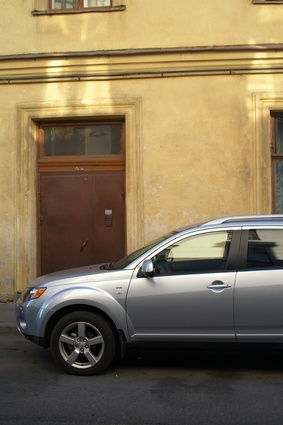
You may want to have window tint installed on your vehicle to enhance its appearance and give it a custom look. But some other benefits of auto window tinting merit your consideration. When choosing the type of tint for your vehicle, you also should consider other factors that can greatly influence your available options.
Window tint can keep your vehicle up to 60 percent cooler and block up to 99 percent of UV rays from the sun. Window tint can help protect your skin from sun damage and prevent the vehicle's upholstery from fading and cracking. The increased privacy provided by window tint keeps the contents of your car concealed from others.
Window tinting starts with a clear layer of polyester film that has been either dyed or embedded with metals. An installer cleans the inside of the windows with a solution, scrapes off any dirt, places the film to the window and smooths the bubbles out of the film. You may choose from film with different levels of darkness. The quality of the tint you select determines how much light it absorbs and how much of the sun's harmful rays it blocks.
Regardless of the quality of your window tinting material, it will break down over time depending on the amount of exposure your vehicle gets to sunlight, the quality of the film and how well the installer placed the window tint. Bubbles forming under the surface and uneven appearance let you know that your tint needs replacing. To avoid having to replace your window tint prematurely, seek a reputable dealer that offers a warranty on the window tint.
Check your state laws to find out how they regulate window tint. Most laws stipulate the amount of visible light that must pass through the windows. The amount may vary depending on your vehicle and its use. Some state laws mandate that the windshield and front windows of a vehicle have lighter tint than the back windows. Your installer may have to place a sticker on your car indicating the tint is legal. In some states, you can present medical documentation that allows you to have darker than legal tint for certain medical conditions. Lack of compliance with these laws can result in fines.
As of 2010, the average cost of window tint can range from $150 to $225 for passenger cars, $150 to $195 for trucks and $170 to $250 for SUVs and minivans. The range depends of the type and quality of tint selected. Upgrades can include nonreflective tint, hybrid film, full metal film, titanium film and stainless or colored film. If the installer has to remove old tint, expect to pay about $25 additional. If you'd like to try your hand at tinting, purchase a kit of precut tints for $60 and up.